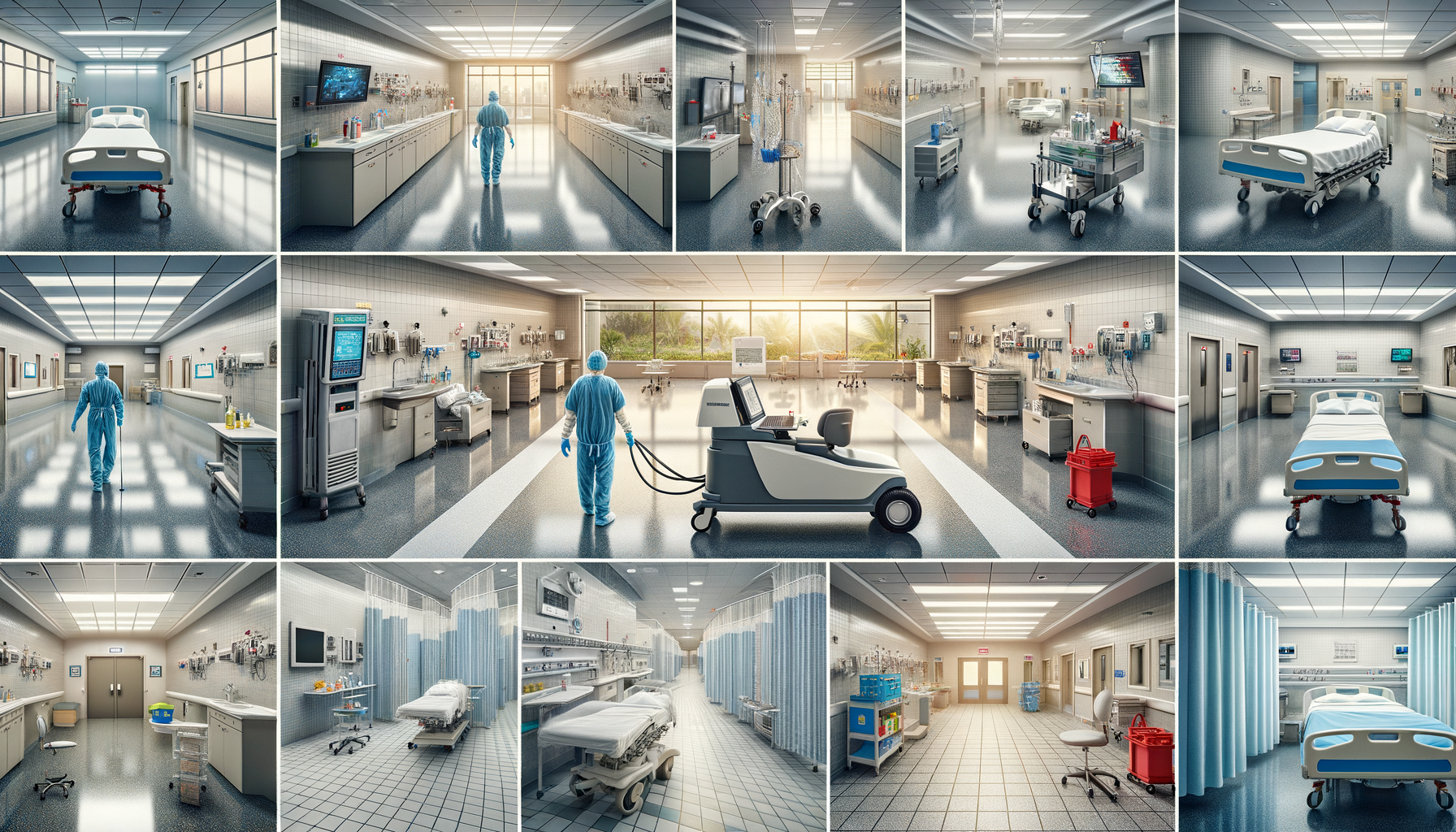Understanding the Role of a Hospital Cleaner
Hospital cleaners are the unsung heroes of the healthcare system, ensuring that medical facilities remain hygienic and safe for both patients and staff. Their responsibilities go beyond mere cleaning; they are pivotal in preventing the spread of infections and maintaining a sterile environment. A hospital cleaner’s duties typically include disinfecting surfaces, managing waste, and ensuring that all areas, from patient rooms to operating theaters, meet strict cleanliness standards. They use specialized equipment and cleaning agents designed to tackle pathogens and other contaminants. In addition to technical skills, hospital cleaners must possess a keen eye for detail and a commitment to maintaining high standards of hygiene. Their work requires not only physical stamina but also a deep understanding of hospital protocols and procedures.
The Importance of Hospital Cleaning Services
Hospital cleaning services play a fundamental role in the healthcare ecosystem. These services are designed to uphold the highest standards of cleanliness and sanitation, which are critical in preventing hospital-acquired infections (HAIs). According to the Centers for Disease Control and Prevention (CDC), HAIs affect approximately 1 in 31 hospital patients on any given day. Effective cleaning services are essential in reducing these statistics and ensuring patient safety. Professional cleaning services employ trained staff who are knowledgeable about the latest cleaning technologies and infection control practices. They use advanced equipment and eco-friendly cleaning agents to effectively sanitize hospital environments. These services also involve regular audits and inspections to ensure compliance with health regulations and standards.
Key Components of Hospital Cleaning Protocols
Hospital cleaning protocols are comprehensive guidelines that ensure every corner of a medical facility is thoroughly sanitized. These protocols are developed based on research and are regularly updated to incorporate new findings and technologies. Key components include:
- Regular cleaning schedules: Ensuring that all areas are cleaned at specified intervals.
- Use of appropriate disinfectants: Selecting cleaning agents that are effective against a broad spectrum of pathogens.
- Special attention to high-touch areas: Focusing on surfaces that are frequently touched by patients and staff, such as door handles and bed rails.
- Waste management: Proper disposal of medical and hazardous waste to prevent contamination.
Adherence to these protocols is critical in maintaining a sterile environment and preventing the spread of infections. Hospital staff are trained to follow these guidelines meticulously, ensuring that the facility remains a safe space for healing and recovery.
Challenges Faced by Hospital Cleaning Staff
Hospital cleaning staff face numerous challenges in their daily operations. The nature of their work requires them to be constantly vigilant and adaptable. One of the primary challenges is dealing with the high risk of exposure to infectious diseases. Cleaners must wear protective gear and follow strict protocols to safeguard their health. Additionally, they often work in high-pressure environments where time constraints are common. The need for thoroughness and speed can be difficult to balance, especially during peak times or emergencies. Moreover, hospital cleaners must keep up with evolving cleaning technologies and practices, which require ongoing training and education. Despite these challenges, the dedication and resilience of hospital cleaning staff are essential in maintaining the integrity of healthcare facilities.
Conclusion: The Impact of Effective Hospital Cleaning
Effective hospital cleaning is a cornerstone of patient safety and quality care. It not only reduces the risk of infections but also enhances the overall patient experience by providing a clean and welcoming environment. The role of hospital cleaners and cleaning services cannot be overstated; they are integral to the healthcare system. As healthcare facilities continue to evolve, the importance of maintaining rigorous cleaning standards becomes even more critical. Investing in advanced cleaning technologies and comprehensive training for cleaning staff will ensure that hospitals remain safe havens for healing and recovery. Ultimately, a clean hospital is a testament to the commitment of healthcare providers to the well-being of their patients and staff.








